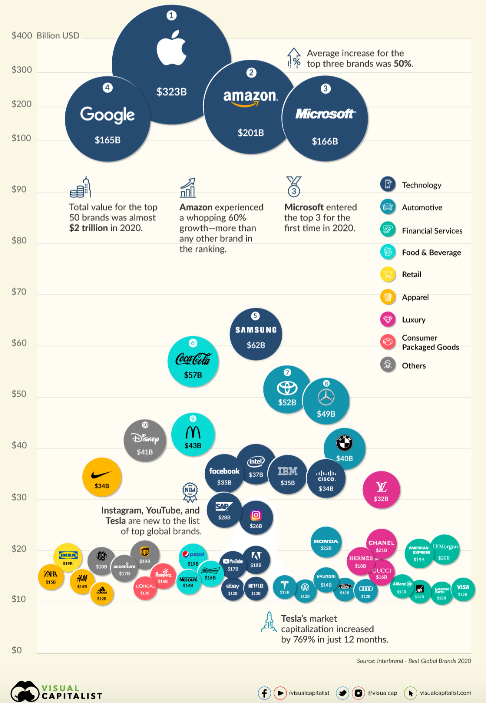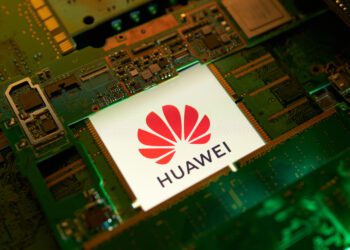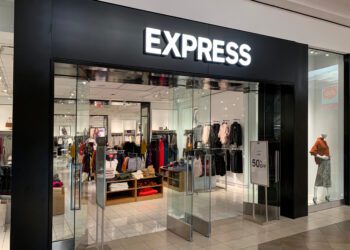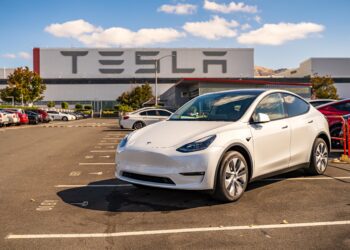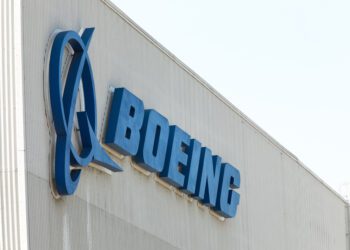Amid the reckoning in the brand world and as consumers move cautiously into 2021, Visual Capitalist listed the top 50 most valuable brands of last year.
Text by
For many brands, it has been a devastating year to say the least.
Over half of the most valuable global brands have experienced a decline in brand value, a measure that takes financial projections, brand roles in purchase decisions, and strengths against competitors into consideration. But where some have faltered, others have asserted their dominance and stepped up for their customers like never before.
The visualization below showcases the top 50 most valuable global brands from a study conducted by Interbrand, which calculates brand value across hundreds of companies.
The heavy hitters
With an eye-watering brand value of $323 billion, Apple is the most valuable global brand in the world, followed closely by Amazon in second place, and Microsoft in third. Average growth in brand value across all three of these tech brands in 2020 was roughly 50%.
In particular, Microsoft—who overtook Google in this year’s ranking—has increased its brand value by $100 billion in just one decade. The tech giant has reinvented itself over the years by focusing not just on how its products impact consumers’ lives, but instead on how they impact the planet. The company is promising to become carbon negative by 2030.
However, other brands that sit at the top of the global brands list have not had the same recent success. Coca-Cola for example sits in sixth place, but has seen a decline in brand value of over $13 billion since 2010.
The Great Brand Shift
As pharmaceutical companies begin distributing vaccines across the globe, consumer optimism is starting to build again. However, the future of brands remains uncertain.
Only 41 out of 100 most valuable global brands remain in the ranking today from the study conducted in 2000. With almost 60 hugely influential brands falling out of favor in the last two decades, there are several ways in which today’s brands can build economic resilience and thrive in an anxious world:
- Leadership: The degree to which a brand has a clear purpose that is executed seamlessly across the entire organization.
- Engagement: Creating meaningful and collaborative relationships with consumers based on the brand’s unique story and reason for being.
- Relevance: Being omnipresent for customers and delivering on their expectations by going beyond selling products or services.
Although the impacts of 2020 will be felt for years to come, brands that stay ahead of consumers’ changing expectations will be in a better position to weather the storm.


